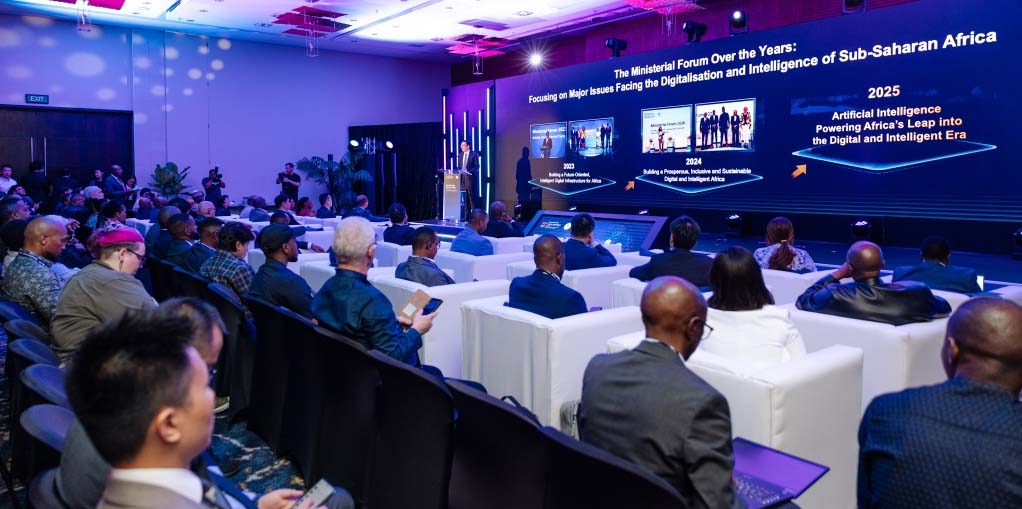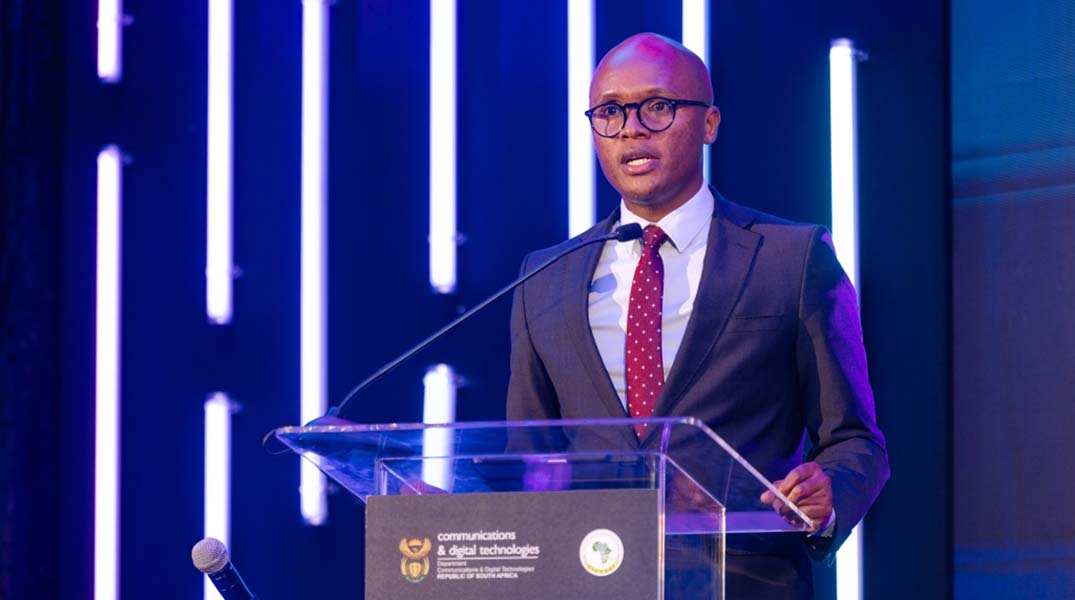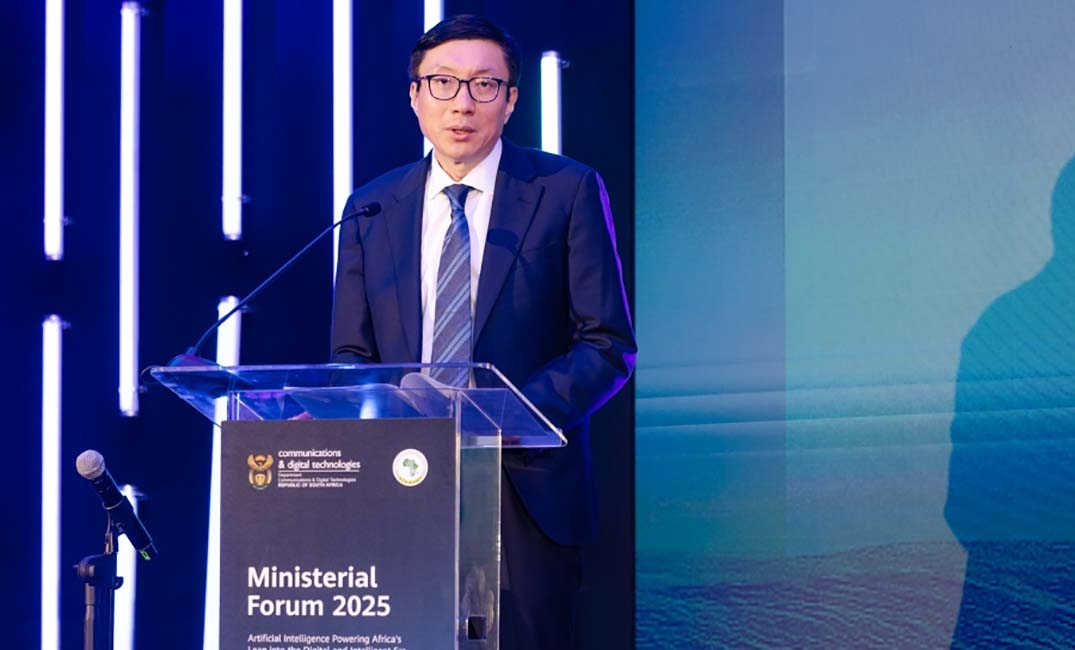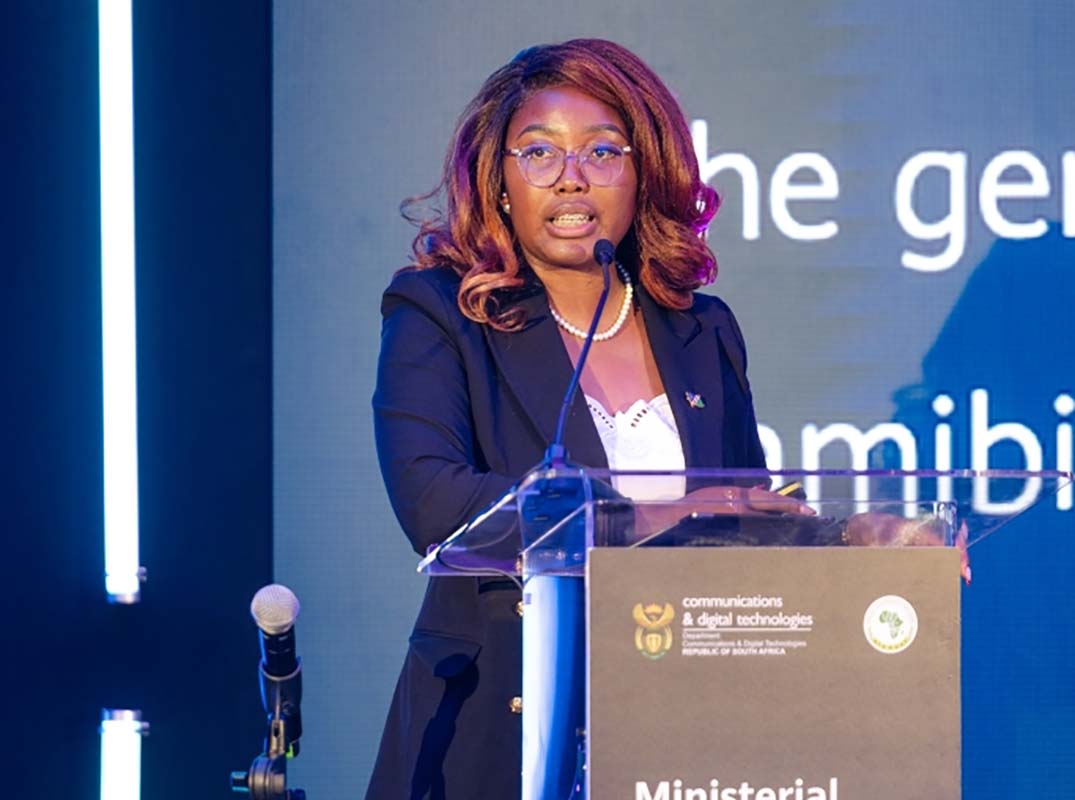At AfricaCom, DCDT and the ATU held the 4th Ministerial Forum, under the theme “Artificial Intelligence Powering Africa’s Leap into Digital and Intelligent Era”, convening ministers to back regional compute hubs, African-trained models and issue the joint communique.
African ministers and ICT leaders have endorsed a continent-wide push to build shared artificial intelligence (AI) infrastructure, following a ministerial forum co-hosted by South Africa’s Department of Communications and Digital Technologies (DCDT) and the African Telecommunications Union (ATU) on the side-lines of AfricaCom in Cape Town. The forum called for coordinated investment in sovereign computing power, local-language models and AI skills so that economic gains from AI are created in Africa and for Africa.

Building on the African Union’s Continental AI Strategy, the AU’s framework to guide member states on AI policy, skills and infrastructure and the African AI Declaration endorsed by 49 AU member states, the forum positioned AI as a public-good capability rooted in African data, languages and use cases. Organisers said the focus now is to turn policy into delivery with clear access and affordability targets, shared governance guardrails, and progress reporting through the ATU.
“The continent has the ambition and the policy direction, now we must strengthen the ecosystems that make this growth possible,” said John Omo, ATU Secretary-General. “With sound governance and deliberate investment, Africa can lead the future of AI,” said Omo.
As host ministry, South Africa’s DCDT framed the forum as a move from strategy to implementation, aligning national plans with continental instruments, setting measurable public-service outcomes for AI, and mobilising partnerships across government, academia and industry to expand capacity where it is most needed.
“If AI is to work for Africa, it must work in Africa’s languages, in our contexts, and for our use cases,” said Solly Malatsi, Minister of Communications and Digital Technologies, South Africa.

Solly Malatsi, Minister of Communications and Digital Technologies, South Africa
“I firmly believe that Africa’s approach to AI must be rooted in dignity, fairness and accountability. We have a collective responsibility to ensure that our use and deployment of AI expands human freedom, strengthens our economies, and deepens trust in our public institutions,” he said.
“AI’s contribution to economic development – known as the intelligent economy – is now the world’s fastest-growing sector, we believe that African countries should plan and develop their national AI infrastructure in advance to seize the opportunities presented by AI, to promote high-quality economic growth said Hover Gao, President of Huawei Sub-Saharan Africa region in a keynote address.

Hover Gao, President of Huawei Sub-Saharan Africa
China’s “One Centre, Four Platforms” model, where a national AI computing centre integrates computing power, data and ecosystems to support public services, industry innovation, and research and talent development, reducing duplicated investment through coordinated planning and shared infrastructure.
Gao said a similar approach in Africa would enable countries to localise and govern data within its borders, safeguard critical assets and strengthen digital sovereignty. He added that establishing national or regional AI computing centres should go hand-in-hand with developing foundational models trained and adapted on African data and knowledge so AI can reflect local languages, contexts and use cases, lower costs for sector applications, and accelerate national competitiveness.
Models must be trained to understand Africa’s languages, climate realities, health burdens, informal economies and diverse cultural contexts. Delivering that capability will require public and private investment in local computing capacity, regional cloud centres and the energy systems to power them reliably and affordably.
Emma Theofelus, Namibia’s Minister of Information and Communications Technology, said AI should extend essential services to every citizen, including those in remote areas, with a focus on serving the public good. “Our goal is to put AI to work where it matters most, in clinics, classrooms and local businesses. We are committed to harnessing AI’s potential for innovation, efficiency and transformation, enabling our small society to leapfrog into a leadership role, particularly in green-hydrogen–powered AI systems.”

Emma Theofelus, Minister of Information and Communications Technology, Namibia
“Because AI compute is energy-intensive, we are aligning clean-energy investments with digital infrastructure, leveraging Namibia’s green-hydrogen programme to power regional data centres, cut costs and expand access beyond capitals, while building sovereign compute and trusted data so sensitive information stays within our borders and African-trained models can protect dignity, improve public services and strengthen competitiveness,” said Theofelus.
Ministers and representatives reiterated their commitment to developing AI as a force for good across the continent, as AI could improve outcomes across multiple sectors, including agriculture, healthcare, and education.
At the forum, ministers and high-level representatives from Malawi, Kenya, Nigeria, Namibia and Uganda came together to issue a joint communique committing to the development of shared AI infrastructure, skills training, and resources, founded on principles of resilience and innovation, with sovereign protection and related ecosystems. The communique calls on African leaders to support this approach by pooling resources and investment into shared AI implementation and centres of excellence.
Outcomes from the forum will inform follow-up work with member states, regulators, academia and industry, focusing on access and affordability targets, trusted data flows, and practical access to compute for universities, start-ups and public-sector teams. The ATU will coordinate progress reporting with participating countries in the months ahead.
